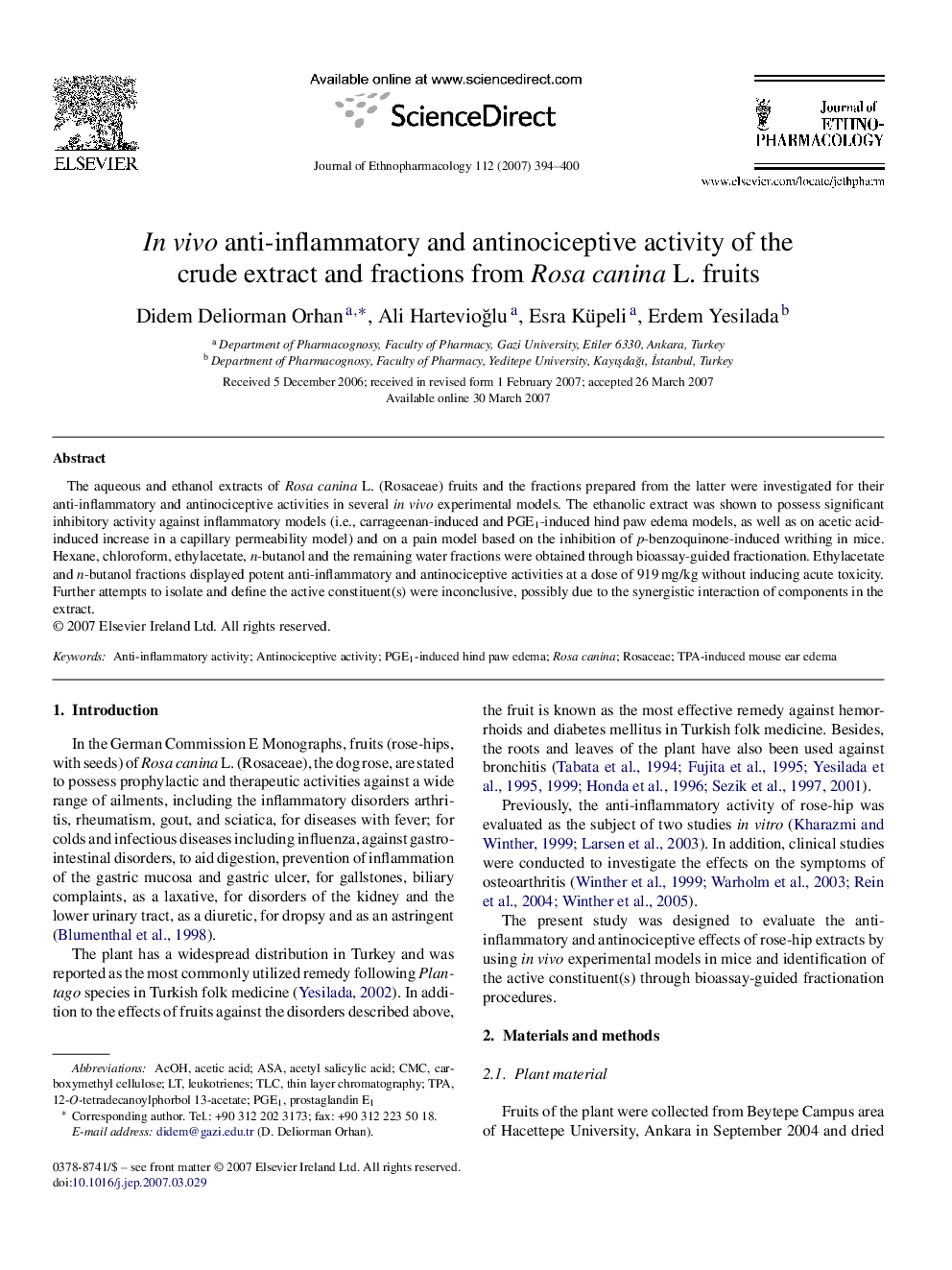| Article ID | Journal | Published Year | Pages | File Type |
|---|---|---|---|---|
| 2547946 | Journal of Ethnopharmacology | 2007 | 7 Pages |
The aqueous and ethanol extracts of Rosa canina L. (Rosaceae) fruits and the fractions prepared from the latter were investigated for their anti-inflammatory and antinociceptive activities in several in vivo experimental models. The ethanolic extract was shown to possess significant inhibitory activity against inflammatory models (i.e., carrageenan-induced and PGE1-induced hind paw edema models, as well as on acetic acid-induced increase in a capillary permeability model) and on a pain model based on the inhibition of p-benzoquinone-induced writhing in mice. Hexane, chloroform, ethylacetate, n-butanol and the remaining water fractions were obtained through bioassay-guided fractionation. Ethylacetate and n-butanol fractions displayed potent anti-inflammatory and antinociceptive activities at a dose of 919 mg/kg without inducing acute toxicity. Further attempts to isolate and define the active constituent(s) were inconclusive, possibly due to the synergistic interaction of components in the extract.
